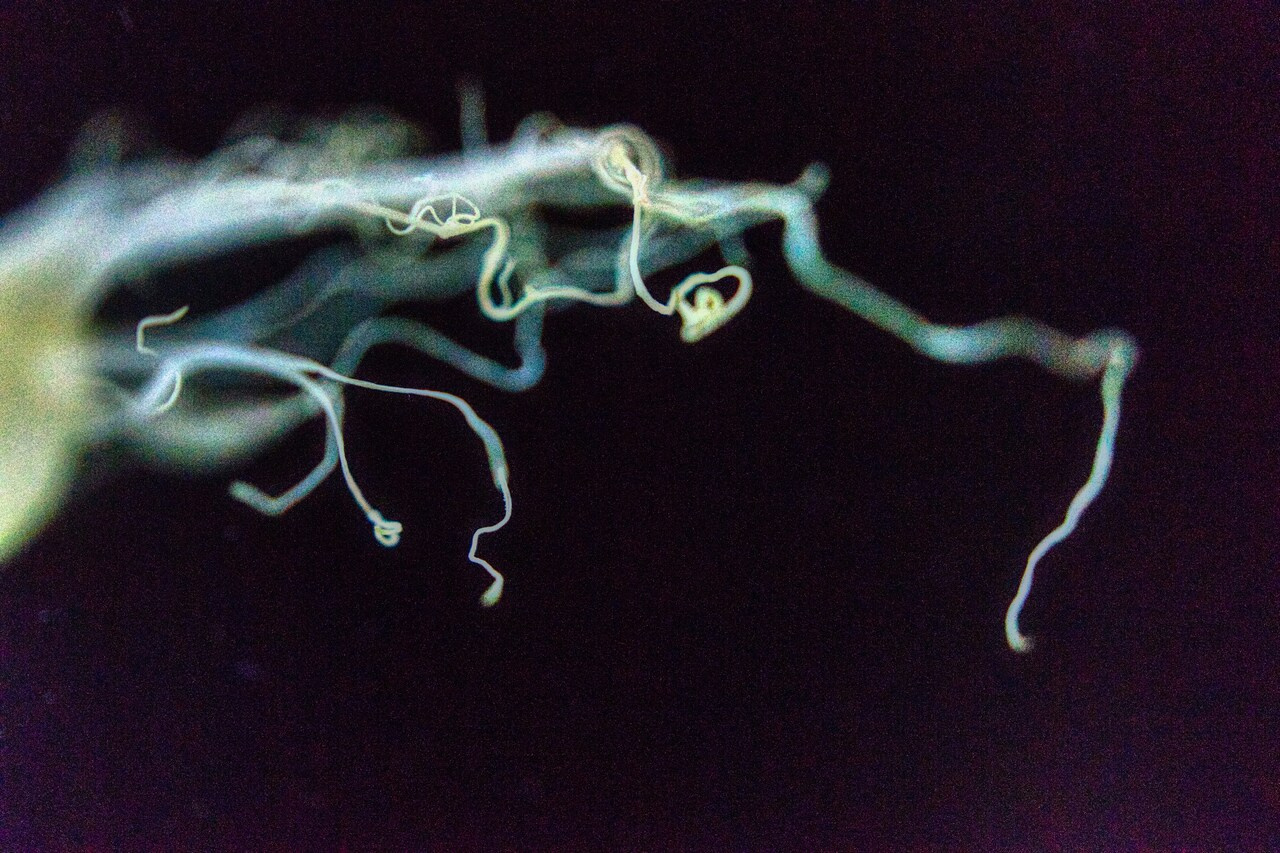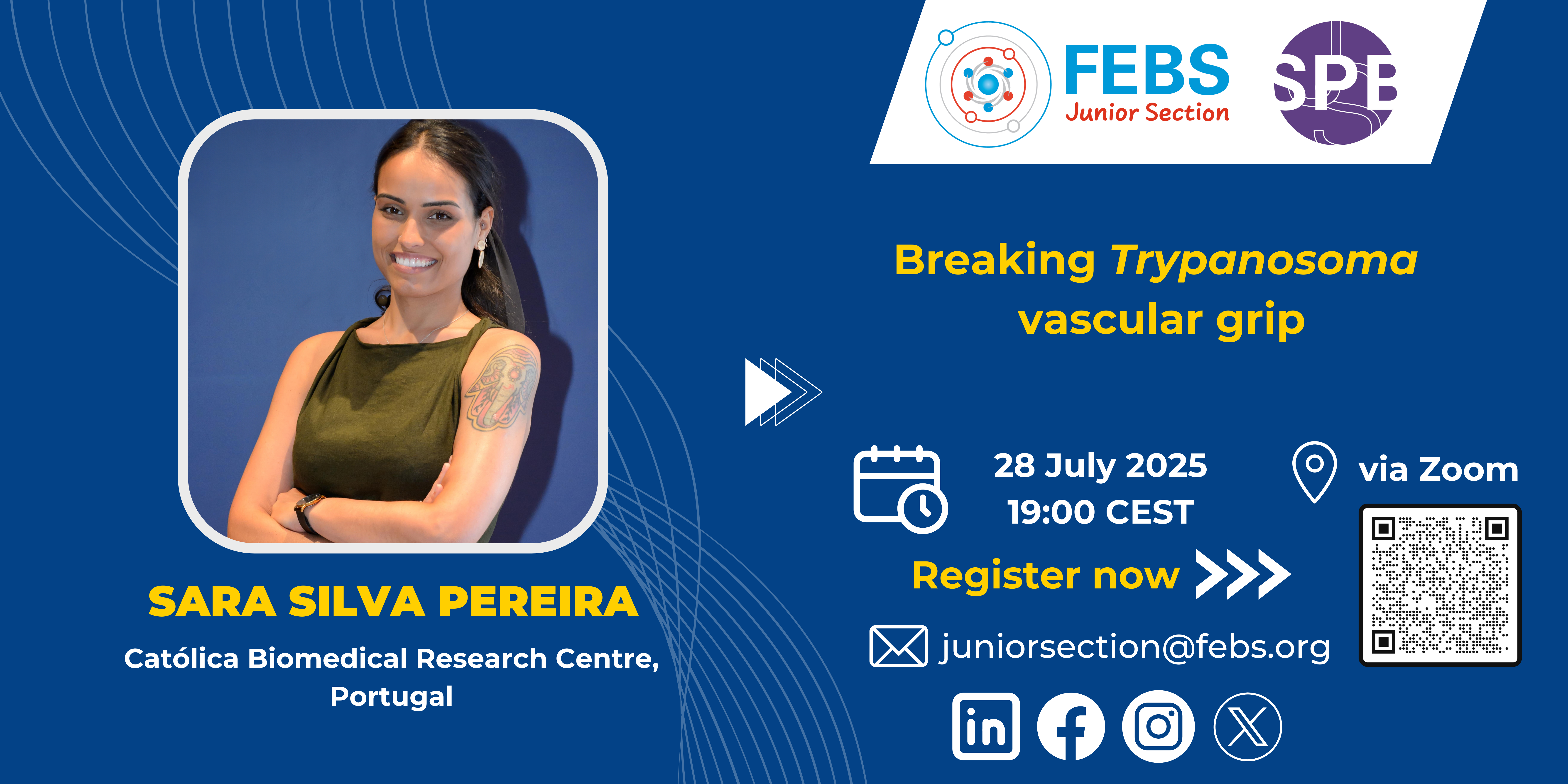FEBS Junior Section present Sara Silva Pereira

Update! Watch the recording of this talk.
This talk is an activity from the FEBS Junior Section, an initiative set up by students and young researchers from some of the FEBS Constituent Societies. Each month members of the FEBS Junior Section organize an online event on either a research or a career topic. This talk was coordinated by SPB Junior Section, the junior section of the Portuguese Biochemical Society (SPB).
Speaker: Dr Sara Silva Pereira, from the Parasite Vascular Interactions Lab at the Católica Biomedical Research Centre in Oeiras, Portugal.
Topic: "Breaking Trypanosoma vascular grip".
Date and time: 28 July 2025, 19:00 CEST.

Biosketch
Sara Silva Pereira leads the Parasite Vascular Interactions Lab at the Católica Biomedical Research Centre in Portugal. She completed her PhD at the University of Liverpool, where her work revealed limited antigenic variation in African trypanosomes, challenging long-held models of immune evasion. As a Marie Skłodowska-Curie Fellow at the Institute of Molecular Medicine in Lisbon, she investigated tissue tropism in these parasites. In 2023, she launched her lab to study how Trypanosoma congolense and T. vivax interact with the host vasculature. Her team integrates parasitology, vascular biology, and microphysiological models to uncover the molecular basis of parasite adhesion and tissue-specific persistence.
Abstract
Our lab investigates how African trypanosomes interact with the host vasculature, with a focus on the phenomenon of vascular sequestration—where parasites adhere to blood vessel walls instead of circulating freely. This poorly understood process is particularly prominent in Trypanosoma congolense, a major cause of livestock disease in sub-Saharan Africa. Using a combination of in vivo models, vascular imaging, and microphysiological systems, we aim to identify the parasite and host molecules that mediate this attachment. Our findings challenge the traditional view that immune evasion through antigenic variation is the sole driver of parasite persistence, highlighting instead the importance of tissue-specific interactions. By dissecting the molecular basis of sequestration, we hope to uncover novel therapeutic targets and shed light on broader principles of host-pathogen interactions at the vascular interface.

The FEBS Junior Section
Want to join this platform for young European life scientists? Learn more about our initiative, check out the Room for the FEBS Junior Section and – if you do not have a junior section yet – read this post about how to set one up!
Photo by Thomas Kinto on Unsplash.





Join the FEBS Network today
Joining the FEBS Network’s molecular life sciences community enables you to access special content on the site, present your profile, 'follow' contributors, 'comment' on and 'like' content, post your own content, and set up a tailored email digest for updates.